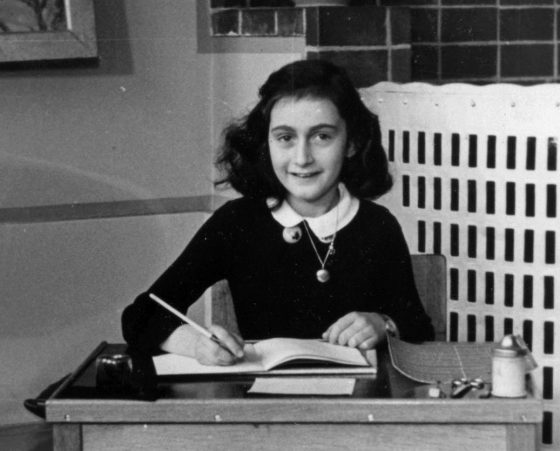FBI cold case expert aims to solve Anne Frank betrayal mystery

A retired FBI agent and a team of mainly Dutch experts have launched an investigation to find out who betrayed Anne Frank and her family during World War II.
Vince Pankoke says he is using the knowledge and expertise in cold case inquiries which were only developed in the last decade in an effort to find out how the Nazis came to find the Frank family in their hiding place on Amsterdam’s Prinsengracht.
‘Until now, most investigation was done by writers, journalists and/or historians, but never by a team of forensic investigators using cold case techniques and supported by artificial intelligence,’ the investigation website states.
Pankoke, 59, told the Volkskrant in an interview he had been inspired to solve the mystery after being told about it by a Dutch police officer during an operation in the Netherlands several years ago.
Having retired last year, he has now decided to make a go of the case. He has already turned up new information, he told the paper.
‘This year I found a list of Amsterdam Gestapo informants in an archive in Washington,’ he said. Pankoke also hopes the use of big data will produce new lines of enquiry. ‘There are archives all over the world,’ he said. ‘And all that information from old investigations has never been combined into one.’
Even if the project, which he hopes to complete by the 75th anniversary of Anne and her family’s discovery, does not produce an answer ‘it will deliver new stories and insights,’ Pankoke told the Volkskrant.
Theories
There have been many theories about who betrayed Anne Frank and the seven others in hiding in August 1944.
The Anne Frank museum said at the end of last year the family may have been found by chance and that there is no conclusive evidence the they were betrayed.
That claim was based on new research which looked at why the Prinsengracht office was raided in the first place. It suggests illegal employment and ration-coupon fraud played a role in the raid and may have led to the discovery and arrest of Anne Frank.
In 2015, a biography of Bep Voskuijl, one of the Frank family’s helpers while they were living in the secret annex in Amsterdam, suggests her sister, who was a collaborator, may have told the Germans about their hiding place.
Anne Frank died of typhoid in the notorious Bergen-Belsen concentration camp in February or March 1945.
Thank you for donating to DutchNews.nl.
We could not provide the Dutch News service, and keep it free of charge, without the generous support of our readers. Your donations allow us to report on issues you tell us matter, and provide you with a summary of the most important Dutch news each day.
Make a donation